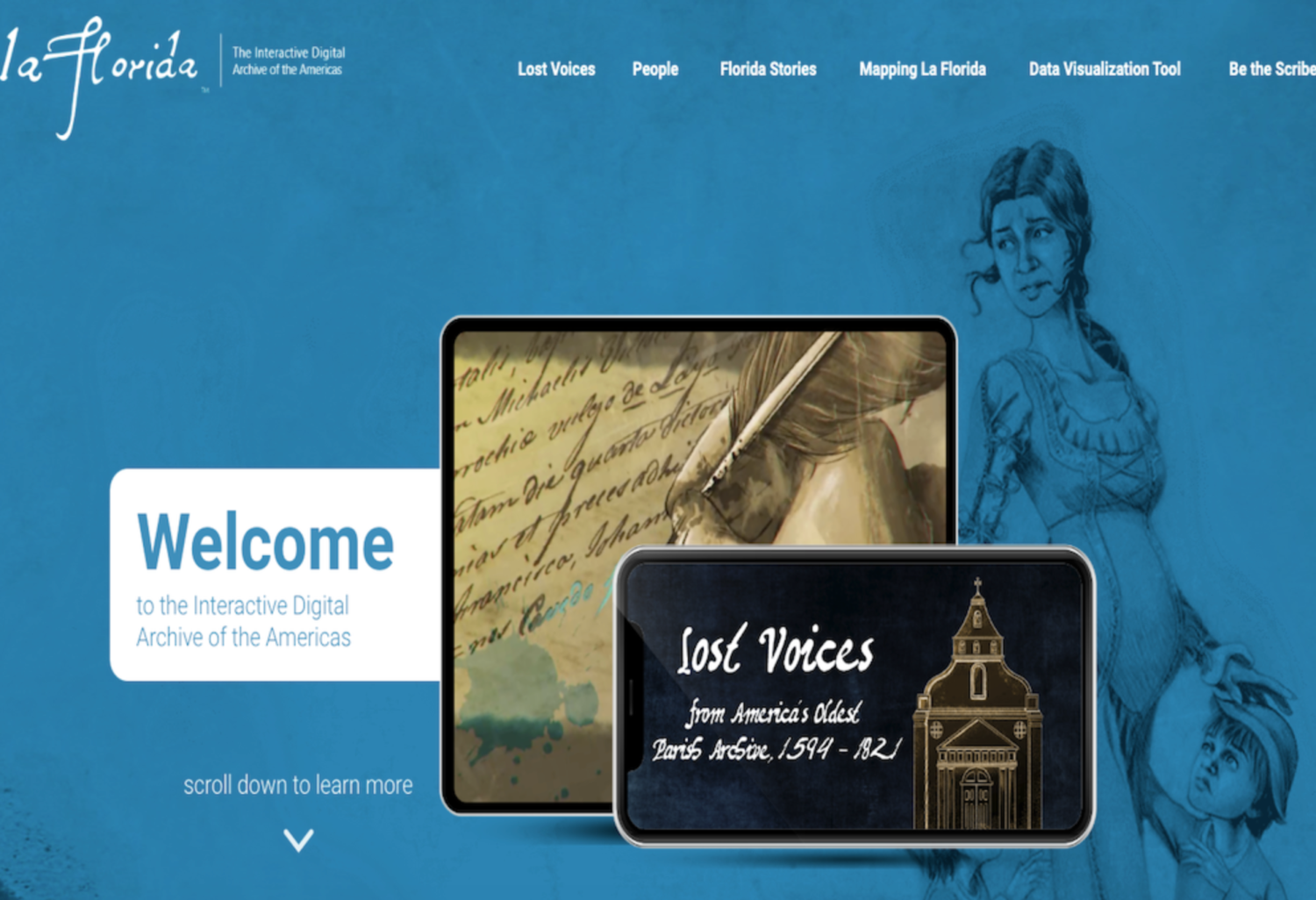New “Lost Voices” Online Exhibit Translates and Digitizes America’s Oldest Parish Archive to Provide Rare Insight Into Early Florida History
From the University of South Florida:
A new online exhibit launched today by La Florida: The Interactive Digital Archives of the Americas will provide the public with unprecedented insight into the daily lives and relationships of the multi-ethnic population that comprised St. Augustine, Fla. from the 16th-19th centuries. The Florida city is the oldest continuously inhabited European settlement in the continental U.S.
Titled “Lost Voices from America’s Oldest Parish Archive, 1594-1821,” the initiative is making St. Augustine’s diocesan archives digitally accessible for the first time to a global audience. The project is being launched in two phases. Phase I, published on June 6th, includes more than 4,000 pages of ecclesiastical records from America’s first parish. Phase II will be published later this year.
[Clip]
The “Lost Voices” initiative is featured on the newly-revamped La Florida digital platform. The platform allows teachers, students, scholars and the general public to research pivotal moments in early Florida history, conduct detailed searches on individuals and demographic changes and create custom infographics from the entire collection.
The collection presently includes baptism, marriage, death and burial records, including the 1801 burial record of Georges Biassou, an early leader of the Haitian Revolution who moved with his family to St. Augustine. Other documents identify the names of dozens of runaway slaves who risked their lives to escape English plantations in search of freedom in Spanish Florida.
Some of the individuals recorded in the parish records were buried in St. Augustine’s historic Tolomato Cemetery. “Lost Voices” will enable historians to connect individuals in the cemetery to their actual historical records and start geotagging events in those individuals’ lives. The people documented in these records will also be added to a searchable population database, allowing users to link individuals to the original records in which they appear.
“Lost Voices” is translating and digitizing thousands of handwritten documents from America’s first parish, providing rare insight into early Florida history.
“This project breaks new ground by giving a voice to those who have been traditionally overlooked by the history books,” said Martin Tadlock, regional chancellor of USF’s St. Petersburg campus. “By enhancing those complex and nuanced stories through the use of updated technology, Dr. Francis and his team have given all of us a new and fuller understanding of Florida’s rich colonial history.”
Piecing together clues about the little-known lives of Native Americans, free and enslaved Africans, and conquistadors from Spain, Portugal, Germany, Ireland and elsewhere, La Florida brings early Florida’s diverse population to life through short videos, interactive maps and a searchable population database. It weaves together the lives and events of more than three centuries of Florida’s colonial past, from Juan Ponce de León’s 1513 expedition to 1821, when Florida became a U.S. territory.
“La Florida’s fundamental goal is to combine cutting-edge technology with rigorous historical research in order to share Florida’s colonial history in compelling and innovative ways,” said Rachel Sanderson, associate director of La Florida.
Francis and his team work with academic and cultural institutions to comb through thousands of pages of original documents in archives in Spain, Italy, England, Mexico and the United States. The three-year “Lost Voices” initiative built on the expertise of paleographers, historians and translators to transcribe and translate the entire collection of St. Augustine’s colonial ecclesiastical documents, which are largely written in Spanish, along with hundreds of Latin documents.
[Clip]
The “Lost Voices” project was supported by a $250,000 major initiatives grant from the National Archives and the generous support of the Hough Family Foundation, the Lastinger Family Foundation and the Frank E. Duckwall Foundation.
Learn More, Read the Complete Announcement
Filed under: Archives and Special Collections, Digital Collections, Funding, Maps, News, Patrons and Users
About Gary Price
Gary Price (gprice@gmail.com) is a librarian, writer, consultant, and frequent conference speaker based in the Washington D.C. metro area. He earned his MLIS degree from Wayne State University in Detroit. Price has won several awards including the SLA Innovations in Technology Award and Alumnus of the Year from the Wayne St. University Library and Information Science Program. From 2006-2009 he was Director of Online Information Services at Ask.com.



